[GroupBuy] Showrunner – Ryan Lee
$297.00 Original price was: $297.00.$29.00Current price is: $29.00.
The Showrunner model offers a revolutionary approach to brand building, shifting the focus from the individual creator being the central figure to becoming the architect of a thriving, scalable brand world. It’s about building a system, not just a presence.
Table of Contents
Showrunner
The traditional creator economy often traps individuals in a relentless cycle of content creation, personal branding, and the pressure to constantly be “on.” This leads to burnout, funnel fatigue, and a ceiling on growth. The Showrunner framework, as championed by Ryan Lee, offers an escape from this trap by reimagining the business as a hit television show. Instead of being the product, the creator builds the world that contains the products.
This subtle but profound shift unlocks the potential for scalable, sustainable, and ultimately more fulfilling entrepreneurship. Imagine building a Star Wars or Marvel Universe – with characters, rich stories, and merchandise that all work together without needing George Lucas or Kevin Feige to be in every scene. That is exactly what Showrunner method aims to deliver. The power lies in the system, not the individual. This is not just about outsourcing or delegating; it’s about designing a brand with longevity and intrinsic appeal, creating a universe that attracts audiences and keeps them coming back for more.
The Showrunner model isn’t about becoming invisible; it’s about becoming indispensable as the strategic architect of an enduring and engaging brand. Think of it as transitioning from a solo performer to the conductor of an orchestra, where your role is to guide and coordinate the various components to create a harmonious and powerful whole. The beauty of this approach lies in its ability to free the creator from the constant need to be the face of the brand, allowing for more creative freedom and strategic decision-making. It’s about building a legacy, not just a fleeting moment of fame.
Business as a Hit Show
The core of the Showrunner framework is the analogy of a business as a hit television show. This reframes the entire approach to brand building, shifting the focus from individual products and sales funnels to a rich and engaging universe. Think of Netflix: customers aren’t just buying movies; they are subscribing to a whole library of content in a system. That’s what Ryan Lee is implying with this framework. Instead of a constant scramble for the next sale, the goal becomes creating a world that audiences want to enter, explore, and “binge.” This means developing a compelling narrative, memorable characters, and a distinct visual style that resonates with the target audience.
The customer is not just buying a product but more an access to an experience. It takes the pressure off of the single product. The brand becomes an immersive experience, inviting customers to become active participants in the story rather than passive consumers. This approach allows you to build a brand that is more than just a collection of products; it becomes a cultural phenomenon. Your target audience is not only buying your offers but also subscribing to a continuous experience.
For example, imagine a fitness brand that isn’t just selling workout programs but a whole world where working out and healthy living is a fun experience with a supportive community, engaging challenges, and inspiring stories. Ryan Lee’s method makes it all possible. Or a software company that creates a comprehensive ecosystem of tools, tutorials, and community forums where users can connect, collaborate, and learn from each other. The key is to create a universe populated with characters, settings, and storylines that captivate the audience and keep them invested in your shows. The genius of this framework is that it turns marketing into storytelling. Instead of selling, show your show.
Escape from the Guru Model
The “guru model,” where the founder is the brand and must constantly be the face of the company, is a common trap for many creators. The Showrunner framework offers a way out of this by allowing you to build a valuable, faceless brand – according to Ryan Lee’s claim – that can operate and grow without your constant, front-and-center involvement. This allows you to focus on the bigger picture: strategy, innovation, and long-term vision. Escaping the guru model is not about hiding or becoming irrelevant; it’s about empowering others to represent your brand and carry your message. It’s about building a system that is bigger than yourself and can continue to thrive even if you choose to step back or pursue other ventures. Think of famous brands where the founders aren’t the face of the company (i.e. Nike).
The key element of the showrunner business design is that you are in control of the stage from backstage. For example, Disney does not need Walt Disney to make new characters for their audience. Or think about the fashion industry: brands are defined by their designs and reputation instead of their CEOs. You don’t need to have your designer to endorse your products, either.
This approach has so many benefits – and freedom is surely the king. You’re also building a business that has greater potential for sale or acquisition. Investors are often wary of companies that are too closely tied to a single individual, as the business’s value is perceived as too dependent on that person’s continued involvement. A brand built using the Showrunner framework, on the other hand, is seen as more sustainable and scalable, making it more attractive to potential buyers.
Ryan Lee
Ryan Lee, the architect of the Showrunner workshop, has been working on the methodology that has shifted from the traditional marketing funnel to the business-as-show mode. Think back to the older form of marketing: to convert a customer, you need to bring audience to your business. Marketing tactics can be through marketing emails, sales promo on Facebooks, or YouTube marketing with the intention of getting audience (and sales) into your funnel. It’s all about the numbers. Now that the new method has evolved, marketing is not just about numbers but content creation.
This also takes a toll on the owner. Lee’s workshop aims to provide creators and founders with a structured approach to liberate themselves from the constraints of the traditional creator model. Think of a creator running a TV show, instead of starring in it. By building a brand universe with characters, stories, and values, individuals and businesses alike can scale and generate opportunities without the constant need for personal involvement. The goal is to free the creators and the owners to work behind the scene to make sure the show is running smoothly.
It’s about design and strategy, not just grind. The real beauty of the Showrunner workshop is the hands-on approach to the business. Rather than delivering theory and hope, Ryan Lee helps the participants to build their brands from scratch, in a way that they not only grasp the underlying concepts but also apply them to their business. This makes the whole brand’s success possible because there is a foundation of understanding of what to do and how to do it.
The Target Audience
The Showrunner workshop isn’t for everyone. It’s specifically designed for entrepreneurs, creators, and marketers who resonate with a very specific set of challenges and aspirations. Ryan Lee targets those who no longer want to be the face of their brand, who are tired of “guru” marketing tactics, and who crave both creativity and profitability. This profile includes those who have multiple ideas but need a system to organize and execute them and those who want to build something “cool” and enduring without their personal presence being a necessity.
The ideal participant is someone who recognizes the limitations of the traditional “guru” model, where the founder is the central figure and must constantly be the face of the brand. They are seeking a way to leverage AI and other tools to amplify their voice without sacrificing authenticity. They are motivated to build a “build once, sell forever” asset that can generate recurring income and provide long-term value.
The participants of Ryan Lee’s Showrunner workshop are those who are ready to take a step to design themselves to build a brand with longevity. By transforming into the architect of a brand universe, they’re creating a system that’s separate from individual products and sales funnels.
Curriculum and Learning Objectives
The Showrunner workshop is structured around three key days: Building Your World, Creating Your Cast, and Packaging & Promoting the Show. Each day has a specific focus and set of objectives and outcomes.
Day 1 is all about building the foundational universe of the brand because before you create a product, there needs to be an ecosystem to support it. Participants focus on crafting a world where the brand’s ideas, voice, and values come alive. By eliminating confused positioning and generic offers, participants design a world that invites audience exploration and loyalty. The main result is in turning scattered ideas into a fully formed, cohesive universe without forcing a narrow niche.
Day 2 focuses on creating the cast of characters or entities that will populate the brand world. This is about decentralizing the founder’s role and building a system that can scale without requiring the founder to be constantly “on camera.” Participants learn to develop characters or alter-egos – real or fictional – to represent the brand and carry its message. They also learn to leverage AI or their own voice to multiply their brand presence without simply cloning themselves.
Day 3 is about translating the brand’s world and cast into tangible, monetizable assets. Participants learn to develop high-concept, monetizable offers and products that feel like entertainment rather than a sales pitch. They gain clarity on product naming, marketing angles, and packaging and learn how to convert the show framework into a source of recurring monthly income.
Promised Outcomes and Key Benefits
Participants in the Showrunner workshop are expected to achieve several strategic and practical benefits that address core business-building challenges, according to Ryan Lee. These benefits can be grouped into several key categories:
- Creative Direction: The workshop ends the paralysis of having too many ideas by providing a clear system to organize and execute them. Participants can ship creative work without second-guessing or burnout.
- Brand Architecture: The workshop establishes a brand foundation that is bigger than the founder – a world people want to return to, ensuring long-term engagement and loyalty.
- Audience Engagement: This concept is about creating audience obsession by designing a universe that invites exploration, binging, and repeat purchasing because the brand now has value to offer more than products.
- Offer Creation: This process guides the design of irresistible offers that feel more like entertainment (like Netflix) and less like a sales pitch (like a webinar), commanding higher attention and value.
- System Scalability: The workshop delivers a framework to build a machine that can be cloned, scaled, or even sold. It is designed to build once, then scale.
Conclusion
The Showrunner framework, as presented in Ryan Lee’s workshop, represents a paradigm shift in brand building. It shifts the focus from the individual creator to the creation of a rich, engaging brand world, freeing the creator from the limitations of the “guru” model and enabling scalable, sustainable growth. By reframing the business as a hit television show, the Showrunner approach allows for the creation of immersive experiences that captivate audiences, build lasting loyalty, and generate recurring revenue. This comprehensive framework aims not just to create successful brands but also to liberate creators, allowing them to focus on strategy, innovation, and long-term vision while their brand universe thrives independently.
Sales Page:_https://www.ryanlee.com/showrunner
Delivery time: 12 -24hrs after paid




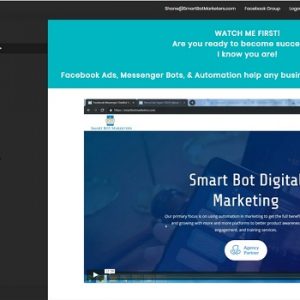
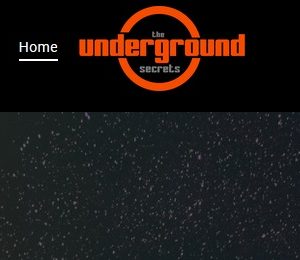
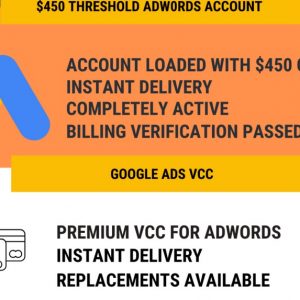

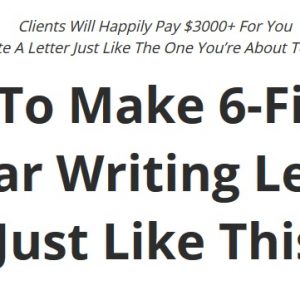


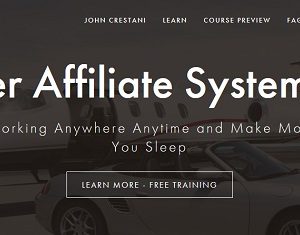
Reviews
There are no reviews yet.